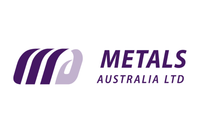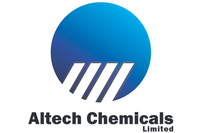Graphite Companies Respond to Tanzania's New Mining Laws
Several graphite exploration firms have suspended trading determine the impact the laws will have on their operations in Tanzania.
Tanzanian President John Magufuli signed new mining bills into law on Monday (July 10) that are designed to give the government more control over mining projects in the country.
The laws, which were passed in parliament last week, allow the government to have a 16-percent stake in Tanzanian mining projects with a right to increase that stake to 50 percent. Among other things, they also give the government the right to renegotiate or scrap natural resource contracts, and raise royalties on gold, copper, silver and platinum exports.
Tanzania is home to a slew of graphite exploration companies, and since the news hit market watchers have been quick to speculate how they could be affected. In particular, some experts are worried about their ability to raise capital moving forward — one investment banker told The Australian that the new laws will damage Tanzania’s reputation as an attractive place for mining projects, and will make it extremely difficult for companies to attract new shareholders.
Tanzanian graphite firms cautiously optimistic
The companies themselves have been slower to respond. Many graphite-focused companies in Tanzania requested temporary trading suspensions after the news was released in order to examine how the laws will impact them; for the most part they have not yet resumed trading. That said, many have issued preliminary statements explaining the steps they are taking to sort out their next moves.
For example, on July 5, Kibaran Resources (ASX:KNL) said that “due to the international debt financing structure planned for the Epanko graphite project, Kibaran is presently obtaining financial advice in regard to the legislative impacts relating to retained earnings, financial accounting and the use of financial institutions operating in Tanzania for the receipt of proceeds from the sale of products.”
Similarly, Graphex Mining (ASX:GPX) said on July 7 that “there remains uncertainty regarding the operation of the proposed legislation.” However, the company also noted that “the 16 percent free carried interest and the 1 percent clearing fee appear to apply” to Ngwena Tanzania, its wholly owned subsidiary. Ngwena holds the Chilalo graphite project in the country.
Walkabout Resources (ASX:WKT) issued a more positive release on July 6, commenting that “after considering local and international legal opinion, the board considers that none of the amendments as they currently stand, would cause the company to halt or suspend its investment in the project or from working in Tanzania.” The company’s main asset is the Lindi Jumbo graphite project.
Another more positive release came on July 7 from Volt Resources (ASX:VRC). The company noted that based on its initial review and external legal advice it doesn’t believe that the changes will prevent it from progressing with its business strategy and plans to develop its Namangale graphite project.
Other graphite companies operating in Tanzania include Magnis Resources (ASX:MNS) and Black Rock Mining (ASX:BKT). They have not commented on the situation in Tanzania so far. The former is focused on its Nachu graphite project, while the latter holds the Mahenge graphite project.
Good news for Mozambique-focused graphite firms
While the Tanzanian government’s decision has brought uncertainty for companies in the country, it has been a boon for graphite-focused companies in neighboring Mozambique.
Syrah Resources (ASX:SYR), which is developing its Balama graphite project in Mozambique, had seen its share price rise 19.13 percent over the five days ended July 11. Triton Minerals (ASX:TON) experienced an almost equal gain in share price over the same period. Triton has an 80-percent stake in holding company Grafex Limitada, which is working on three graphite projects in Mozambique.
Mozambique has 13,000 tons of inferred graphite reserves and Tanzania has 5,100 tons, according to US Geological Survey data. China continued to be the largest producer and exporter of graphite in 2016, providing 66 percent of the global supply; it was followed by India and Brazil in second and third place, respectively. By the year 2026, graphite’s number-one demand driver is expected to be lithium-ion batteries, which are used in electric vehicles.
Don’t forget to follow us @INN_Resource for real-time news updates!
Securities Disclosure: I, Melissa Shaw, hold no direct investment interest in any company mentioned in this article.
Editorial Disclosure: Magnis Resources is a client of the Investing News Network. This article is not paid-for content.



